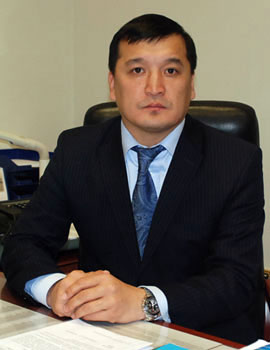The advanced state of Kazakhstan’s civil service is recognised around the world. A clear confirmation of that positive international reputation is the United Nations Development Programme initiative to establish a regional hub of public services for the countries of Central Asia, the Caucasus and Russia at the Agency for Civil Service Affairs and the Academy of Public Administration under President Nursultan Nazarbayev. The main activities of the hub will be the exchange of experience, research, the training of civil servants and promoting reform in the region.
 A new stage of development of the national civil service system was signaled with the adoption in December 2012 of the law “On amendments to some legislative acts of the Republic of Kazakhstan for the public service.”
A new stage of development of the national civil service system was signaled with the adoption in December 2012 of the law “On amendments to some legislative acts of the Republic of Kazakhstan for the public service.”
Among the most important priorities of further strengthening the state, designated in Strategy Kazakhstan 2050, is continuing to reform the state through anti-corruption measures, improving transparency in the selection of civil servants and strengthening the principle of meritocracy. Provisions of the new legislation are aimed primarily at introducing modern technologies which ensure efficient and transparent procedures for admission to the civil service and the opportunity for professional development of civil servants and, ultimately, the increase of public confidence in the state apparatus.
In accordance with the law, a vertical corps of executive power has been introduced. Great importance has been given to the implementation of the strategy’s task to create a new class of professional managers: the A Corps. Representatives of the administrative body are to play a special role in ensuring the relationship between decision-making and implementation; they are also responsible for the implementation of specific government policies.
In keeping with the Presidential Decree of March 7, 2013, “On approval of the register of civil servants’ positions,” the A Corps includes executive secretaries of the central state bodies, chairmen of committees, heads of regional governors’ (akims) administrations, governors of cities and regions and other senior officials.
The National Commission for Human Resources under the president of Kazakhstan, the main principles of which are meritocracy and openness, was assigned to form a pool for the posts in the A Corps.
The main tasks of the commission are defined in the decree of March 7, 2013 and include the development of proposals and recommendations to the president on the formation of human resources policy and its implementation with respect of administrative officials of the A Corps; examination of special qualification requirements for positions in the body, recommendations on the formation of a personnel reserve of managers and assessment of civil servants of the A Corps and planning of their careers, including rotation and making suggestions for the dismissal of civil servants in the management body. The National Commission will conduct interviews with each candidate who passes the preliminary stage of selection.
The staff structure of the National Commission is defined by the head of state and includes the deputy head of the President’s Administration for Regional Policy, the deputy prime minister in charge of Administrative Reform and Civil Service; vice-chairmen of the Senate and the Mazhilis of the Parliament, the chairman of the Agency for Civil Service Affairs, the minister of justice, the head of the prime minister’s office, the advisor to the president and the chair of the National Commission for Women, Family and Demographic Policy under President of Kazakhstan. The commission is led by the head of the Presidential Administration.
By analogy with the National Commission, other commissions have been formed in regional centres, cities of national importance and the capital, in order to implement a special procedure for the competitive selection of a talent pool of state servants. In accordance with the current law, the main principles in the selection and competition of candidates are fairness, professionalism and meritocracy.
In compliance with the decree of March 7, 2013, the Agency for Civil Service developed and approved special qualification requirements for the administrative positions of the A Corps. Thus, applicants will actually justify at meetings of the National Commission their right to represent the management body of the country.
The National Commission for Human Resources Policy was tasked by the president to form the A Corps by July first.
The author is the head of the Department of Civil Service and Personnel Policy of the President’s Administration.
